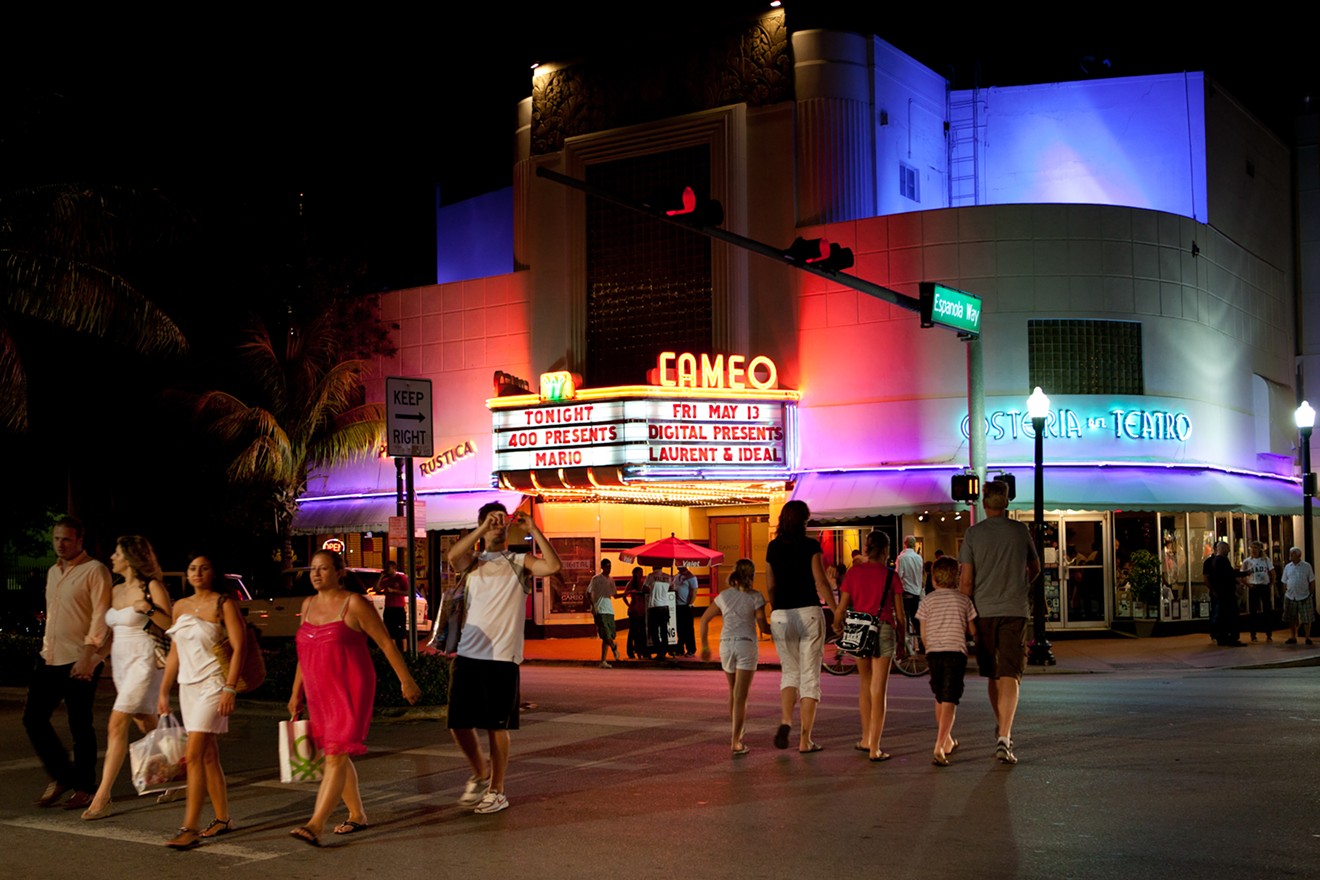The event was headed to Miami Beach's Cameo Nightclub over Memorial Day Weekend, when thousands of mostly young, black tourists come to the city for the unofficial, loosely organized Urban Beach Week. But, in a development Mayor Dan Gelber is celebrating as a "win," there will be no Henny and no waffles. The brunch has been postponed, a decision the mayor attributes to an ordinance he pushed to ban outside promoters from hosting events at bars and nightclubs in the entertainment district during so-called "high impact" periods.
"People need to know, if you put out one of these events here, we’re going to try to find it," the mayor told Re:Miami Beach, the first to report on the canceled event. "We’re going to shut it down. We’re going to take whatever legal action we can and the venue will have very serious repercussions.”
Weirdly, though, the founder of Henny & Waffles tells New Times the event was postponed over logistical issues — not because of Miami Beach's new law. Kenneth Stanard says he doesn't know anything about the city's recently drafted rules or the mayor's comments. "This is my first time hearing of that," he says, adding that he plans to reschedule the brunch. (Cameo's owner, Zori Hayon, hung up on a reporter when asked about the event.)This week @MiamiBeachNews got our first “win” under one of the new laws we passed that I sponsored to address the root of quality of life issues-like those from big events at private clubs during high impact periods. I'm hopeful more successes will follow. https://t.co/HwI77WxCRW
— Dan Gelber (@MayorDanGelber) May 17, 2019
Gelber's ordinance targeting promoters is one of a series of new rules approved after this year's raucous spring break, during which the city sent armored police squads to patrol the beach in response to fights and other unruly behavior. The mayor blamed outside promoters for much of the havoc, claiming they oversell events and promote an out-of-control environment. He took particular issue with a flyer that included the tagline "No rules!! Anything goes!" even though the only address listed for the event was in Overtown.
Beach commissioners said the ordinance was needed because social media allow promoters to reach a wider audience and spring break had gotten "out of control," although at least one of the officials worried about killing Miami Beach's reputation as a party town. Commissioner Michael Góngora, who noted he moved from the famously code-happy Coral Gables to the Beach to be "near the action," said he hoped the commission wasn't sending the message that the city isn't fun anymore.
"I'm glad I grew up in the '90s when I was able to go to the party where everybody was at and have a good time and not worry about all of these problems," he said, "because listening to us up here, clearly we're not young, for starters, not out having fun, and it's kind of sad that we have to pass these ordinances and that I'm reluctantly going along with this just because the situation is so out of control."
Only Commissioner Ricky Arriola opposed the idea. He pointed out that Miami Beach embraces other events that draw large crowds and should be considered "high impact," including Art Deco Weekend and Art Basel, during which outside companies or promoters are often host events at local venues. He noted that if the new restrictions aren't applied during those events, which draw mostly white crowds, the city is bound to face criticism.
"If you don't do it then but you do it during Memorial Day Weekend and you do it during spring break, we're going to get called out for being racist," he said at a commission meeting. "That's what I'm worried about, because based on crowd size, it's the same crowd size."
It wouldn't be the first time Miami Beach has been accused of racism for its attitude toward Urban Beach Week. The city has long had a fraught relationship with the unsanctioned event, which arrived without warning in 2001. Over the years, residents have frequently complained about traffic and safety issues. City leaders have responded in ways that draw criticism from groups like the ACLU and the NAACP: deploying license plate readers along the causeways, cracking down on loud car speakers, and heavily increasing police presence.
One year, the police department supposedly set an arrest quota of 2,000 for the weekend. In 2017, after two people were shot and killed during Urban Beach Week, then-Commissioner Michael Grieco called a press conference to declare that Urban Beach Week was "a thing of the past." (It wasn't.)
The president of the NAACP told the Miami Times he was in the middle of writing a letter condemning Grieco's comments when he found out about a fresh set of outrageous remarks from another then-commissioner, Kristen Rosen Gonzalez. She emailed the police chief to say, "We need to give the cops back their bullets" and "remove their body cams." Rosen Gonzalez later apologized, while Grieco doubled down.
This year, the city once again plans to deploy license plate readers, bring in more than 100 cops from other jurisdictions, and close off residential areas. And, for the first time, they're having artists of color set up installations around the city to "reframe" the weekend and spark "crucial conversations about inclusion, blackness, and relationships."
Henny & Waffles [LA Edition] from The Life(Style) Agency on Vimeo.
It's against this backdrop that Gelber is calling the cancellation of Henny & Waffles a success. He told Re:Miami Beach he's "hopeful more will follow." The city's code department is scouring ads on sites such as Eventbrite, looking for violators, Gelber said. Those found will receive cease-and-desist letters, according to city attorney Raul Aguila. If the event happens anyway, both the promoter and the venue will face penalties that include a $1,000 fine and being shut down for the night."For a decade, we’ve been struggling with getting to the root of the problem," Gelber said to Re:Miami Beach, "and we may have come closer to it but it’s important that we get more and more compliance.”












